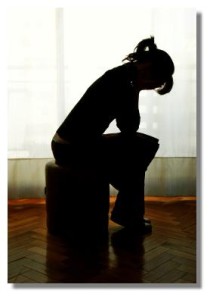Contrary to what some might believe, depression is an illness just like any other. It has causes and symptoms just like any other illness. The symptoms of  depression enable the diagnosis of the condition since the brain can’t be cut open to find the cause of a “disease.” Recovery begins first with the diagnosis made by discussing the symptoms, then with the treatment. You are not “crazy” if you are diagnosed with depression. You have an illness, just like any other illness – treatable and not something you can wish away.
depression enable the diagnosis of the condition since the brain can’t be cut open to find the cause of a “disease.” Recovery begins first with the diagnosis made by discussing the symptoms, then with the treatment. You are not “crazy” if you are diagnosed with depression. You have an illness, just like any other illness – treatable and not something you can wish away.
A few facts
There are enough myths floating around about depression. Now it is time for a fact check.
- Women are twice as likely to suffer from depression as men. Oftentimes, women take on the role of caregiver. As caregivers, we take on a lot of responsibility, including caring for the sick in the family and the elderly. Also, there are many instances throughout our lives that trigger hormonal changes: puberty, pregnancy and menopause to name a few. Hormonal imbalances can contribute to changes in brain functioning which can lead to depression.
- Men are more likely to commit suicide as a result of depression. Fearing the stigma of depression that they may have been raised to believe, they are not forthcoming in admitting they have the condition. Instead of seeking help, they turn to substance abuse as a way of dealing with the feelings of depression. Alcoholism, drug abuse, working longer hours, can all be ways to escape their depression. Escaping depression leads to even deeper depression, and without treatment, these dark feelings can become overwhelming.
- Family members who have experienced depression increase your risk. Genetics is typically a risk factor for many illnesses and diseases, and depression is no exception.
- People with low self-esteem are prone to depressive disorders. Without a support system to help bolster their feelings and give them an outlet, they may turn to other more destructive behaviors – drugs, promiscuity, and excessive risk taking. Their self-esteem issues coupled with their new found coping mechanisms leave them vulnerable to depression.
- Older people are at risk for depression. Some think that depression is a normal part of the aging process. But that is not true. Depression in any form at any age is not normal. Depression in the elderly may be triggered by a number of things such as medication, loneliness, and loss of independent living.
Working to decrease your risk factors for depression may help reduce your chance of getting this illness. Even though you can’t change some of these risk factors, you can develop stress management skills and create a support system of family and professionals. The more resources that you have at your disposal, the less likely depression will take over your life. Know the facts and use that knowledge to improve your chances of living a full, healthy life without depression stealing one moment of it.

Leave a Reply